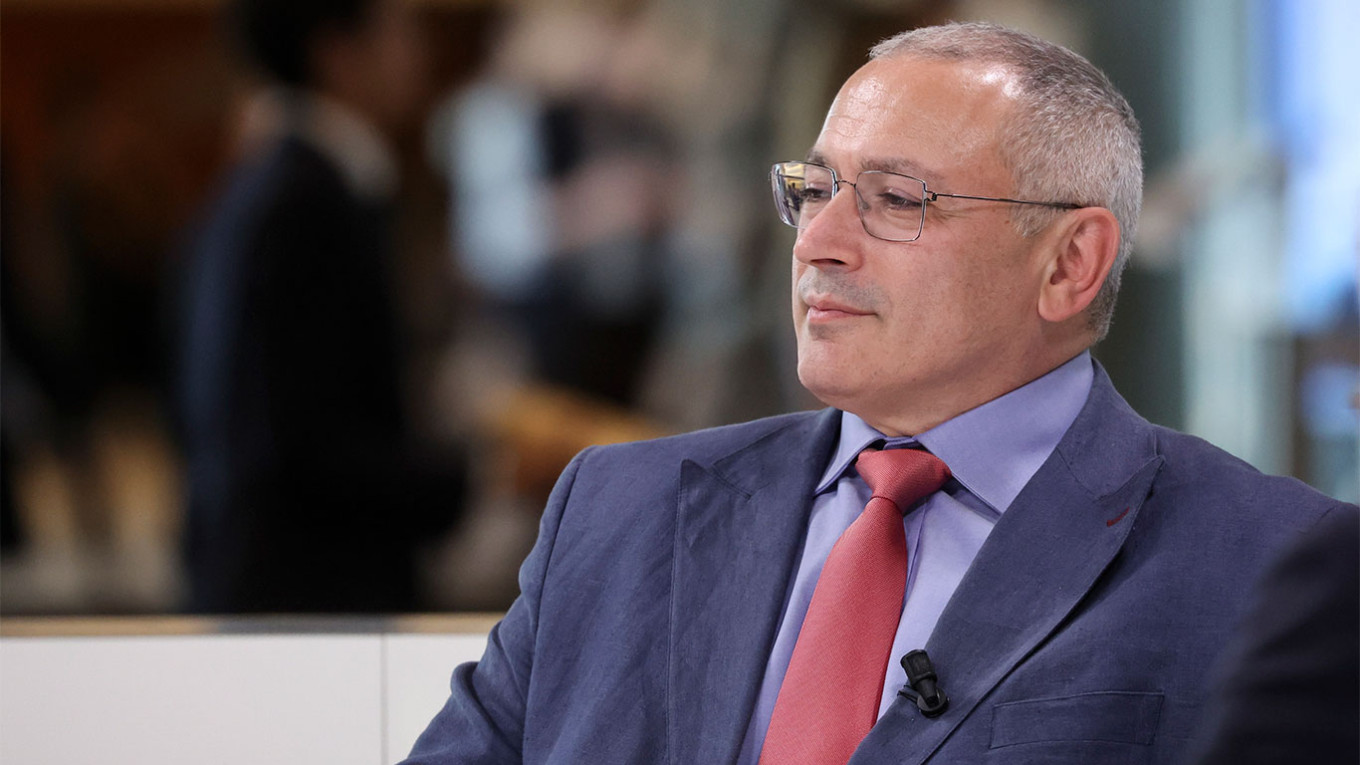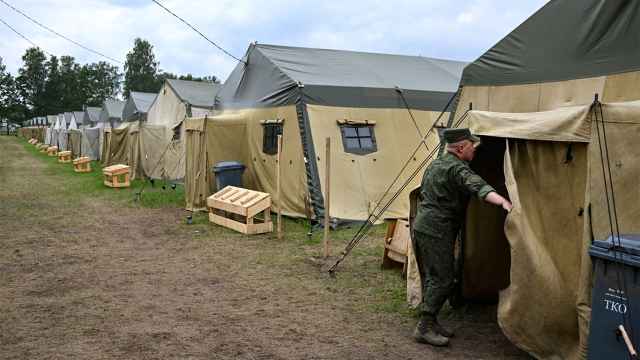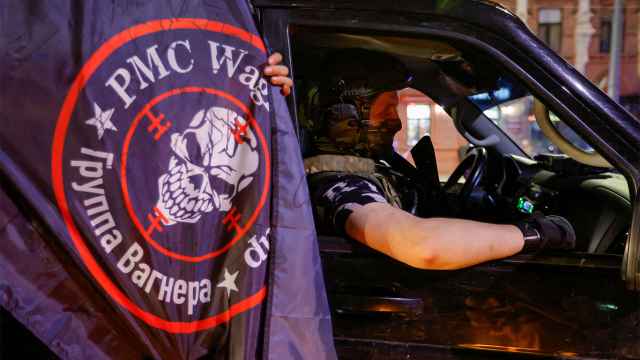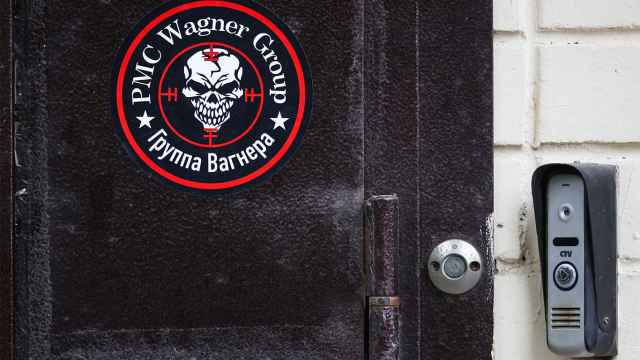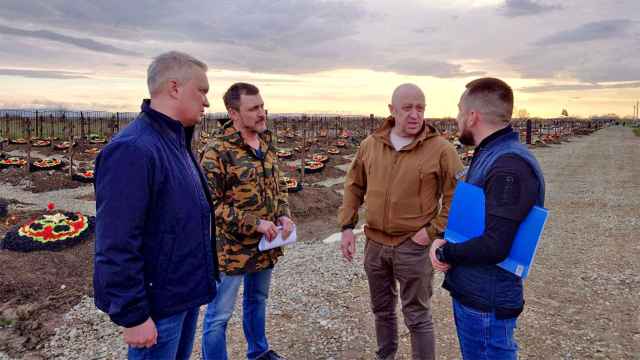The Wagner mercenary group’s rebellion against Russia’s military leadership has further split Russia’s anti-Kremlin opposition, which is already largely divided over a litany of issues and geographically scattered in exile.
Mikhail Khodorkovsky, an exiled former oil tycoon turned opposition figure, swiftly emerged as the most vocal of Prigozhin’s unlikely supporters, while allies of jailed Kremlin critic Alexei Navalny repeatedly cautioned their followers against pledging allegiance to either side.
“Prigozhin repeated word for word what we, the anti-war opposition, have been saying since the start of the war: the goal of the war is barbarism and the official reason for the war…is garbage that no one believes,” Khodorkovsky wrote on his social media in the early hours of the rebellion.
“The way we can help our country right now is by helping people to hear Prigozhin while he is speaking the truth,” Khodorkovsky added, advising his supporters to stand in the way of those attempting to halt Wagner’s “march of justice” on Moscow.
Khodorkovsky, who has over 230,000 followers on Telegram and over 608,000 on Instagram, later urged his followers to “arm themselves,” noting that the rebellion “proved that only armed people can stand up to dictatorship.”
His statements would become a lightning rod of criticism from other members of the opposition.
“This isn’t serious and is nothing more than a search for some magician who will fly in…and rid us of Putin. It is all the more strange to hear this from Khodorkovsky,” opposition politician Vladimir Milov said in an interview with the news outlet Republic.
But the most vocal criticism of the opposition figures who chose to back Prigozhin came from Feminist Anti-War Resistance (FAR), Russia’s largest grassroots anti-war movement.
“Why did they have a desire to join one of the rotten sides of this conflict?” FAR member Sasha Talaver wrote in a post on the group’s official social media.
“I believe there are two reasons: limited political imagination and substantive emptiness of [their] political projects.”
Talaver stressed that opposition figures like Khodorkovsky remained indifferent to the danger the rebellion posed to civilians in the affected regions amid their “thoughts about Russia after Putin.”
Khodorkovsky’s stance, meanwhile, was echoed by Denis Nikitin, the neo-Nazi leader of the Russian Volunteer Corps, a far-right paramilitary unit of Russian citizens fighting against Moscow in the war in Ukraine. The group was one of the leading forces behind the May incursion into Russia’s Belgorod region.
Ilya Ponomaryov, a public supporter of another Ukraine-based anti-Kremlin Russian battalion, the Freedom of Russia Legion, also applauded the “conclusions” made by Khodorkovsky but warned that he should be “more selective when choosing allies.”
“[Our position] is to build our own liberation army…work with partisan formations within Russia [and] build up our own political opposition wing,” said Ponomaryov, a former Russian State Duma deputy now based in Kyiv.
Ponomaryov also stressed that he didn’t back either side in the conflict, which he labeled as a “collusion aimed at preserving Putin’s regime.”
Observers were quick to identify the notes of political opportunism in Khodorkovsky’s rushed, emotional statements. Many also agreed that the outcome of Wagner’s rebellion amounted to a grave miscalculation on the side of the ex-oil tycoon.
“I think most saw it either as a mistake or as a misunderstanding of the situation,” political analyst Anton Barbashin told The Moscow Times.
“It doesn’t mean anything good for Khodorkovsky. At least from the commentary made by other opposition figures…[it is clear that] no one was impressed with his initiative.”
But Khodorkovsky, who is based in London, remained firm in his position even after a growing backlash from fellow opposition members, going so far as to labeling his critics “harmful impotents.”
Meanwhile, the director of Alexei Navalny’s Anti-Corruption Foundation (FBK) Ivan Zhdanov warned followers that the fight between its two adversaries Putin and Prigozhin would bring “little benefit” for the movement.
“Both the Russian leadership and Prigozhin are our enemies, just like all other bandits,” Zhdanov said on Telegram early on June 24.
Navalny himself only learned about the Wagner mutiny post-factum, as the vocal Kremlin critic's penal colony has been keeping him in a state of informational isolation.
“When lawyers in the ‘courtroom’ asked me ‘how did the martial law go for you?’ I thought it was some kind of new joke or a meme,” Navalny wrote in a letter from prison, referring to the hearing in the ongoing trial that could see him sentenced to an additional 30 years in prison.
In the message published across his social media platforms, Navalny stressed that the responsibility for the aborted mutiny — which is believed to have led to the deaths of at least 13 people — lies entirely on Putin, who allowed Wagner’s rise.
“Putin's regime is so dangerous to the country that even its inevitable collapse would create the threat of a civil war,” said the veteran Kremlin critic.
“The fact that Putin's war could ruin and disintegrate Russia is no longer a dramatic exclamation.”
A Message from The Moscow Times:
Dear readers,
We are facing unprecedented challenges. Russia's Prosecutor General's Office has designated The Moscow Times as an "undesirable" organization, criminalizing our work and putting our staff at risk of prosecution. This follows our earlier unjust labeling as a "foreign agent."
These actions are direct attempts to silence independent journalism in Russia. The authorities claim our work "discredits the decisions of the Russian leadership." We see things differently: we strive to provide accurate, unbiased reporting on Russia.
We, the journalists of The Moscow Times, refuse to be silenced. But to continue our work, we need your help.
Your support, no matter how small, makes a world of difference. If you can, please support us monthly starting from just $2. It's quick to set up, and every contribution makes a significant impact.
By supporting The Moscow Times, you're defending open, independent journalism in the face of repression. Thank you for standing with us.
Remind me later.



